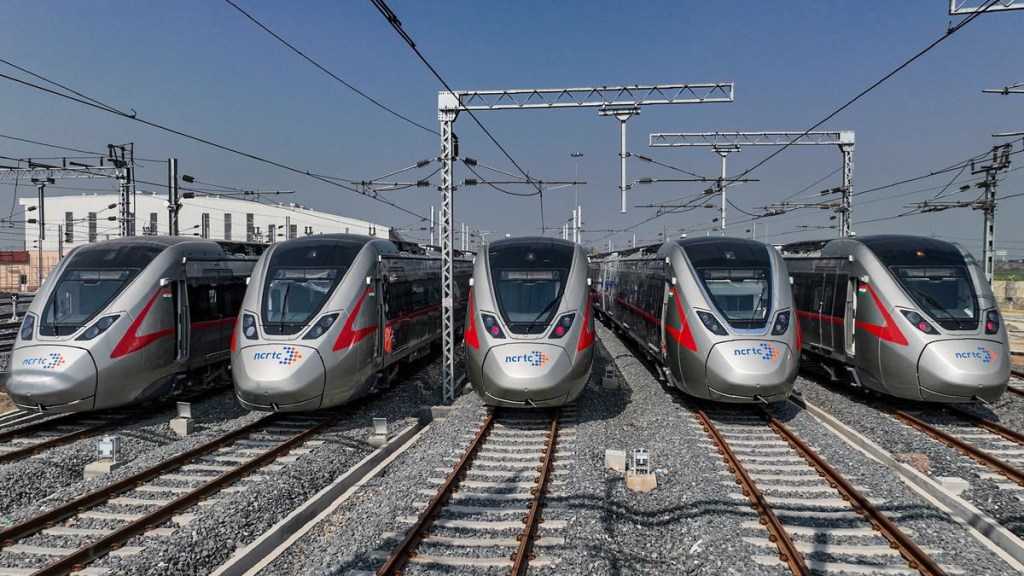The government is planning to upgrade the passenger train services by adding 100 mainline electric multiple units (MEMUs) with a configuration of 16-20 coaches per train, railways minister Ashwini Vaishnaw on Tuesday.
Currently, MEMUs typically operate with 8-12 coaches. “A new factory has been set up at Kazipet, Andhra Pradesh, for the manufacturing of over 100 MEMU trains,” he said, at the launch of Gati Shakti cargo terminal at Maruti Suzuki’s Manesar plant.
The minister said that encouraged by the strong public response to the two operational Namo Bharat trains, the ministry has decided to produce 50 more Namo Bharat trains to cater to the growing passenger demand.
MEMUs are designed for short- to medium-distance routes with high passenger volumes and frequent stops. These trains are optimal for heavy traffic routes, and usually connect city centers with suburban areas. Namo Bharat is a fully AC train suited for short-distance travel with three services under operations – Delhi to Meerut, Ahmedabad to Bhuj, and Jayanagar to Patna.
Besides adding new premium trains like MEMUs and Namo Bharat, the minister said that the government is planning to add more Amrit Bharat services, which are fully non-AC trains catering to low- and middle-income commuters. “In the coming days, six more Amrit Bharat trains will be launched. The production of 50 more trains is underway with more batches to follow,” he said.
Vaishnaw also touched upon the recent changes in the Tatkal ticket booking system which will be implemented from July 1 this year. “As per the new rule, only Aadhaar-authenticated and KYC-verified users will be allowed to book Tatkal tickets during the first 30 minutes of the booking window. This measure will help ensure tickets are available to genuine passengers,” he said.
In FY24, Indian Railways transported about 7.2 billion passengers and 1,617 million tonnes (MT) of freight, which was the second-highest freight volume globally.
The minister noted that annual capex budget has iincreased to Rs 2.5 lakh crore over the last decade. “In the last two-and-a-half years, a focused campaign has been launched to increase the number of general coaches across the network. More than 1,200 general coaches were added in just the past year,” Vaishnaw said.

